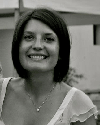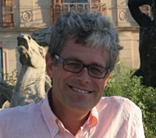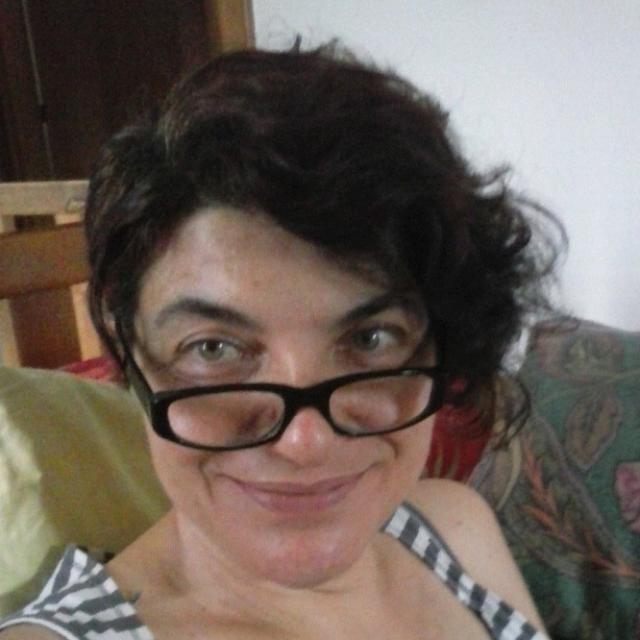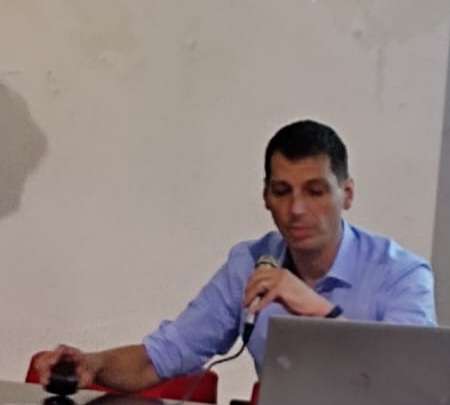Studying at the University of Verona
Here you can find information on the organisational aspects of the Programme, lecture timetables, learning activities and useful contact details for your time at the University, from enrolment to graduation.
Academic calendar
The academic calendar shows the deadlines and scheduled events that are relevant to students, teaching and technical-administrative staff of the University. Public holidays and University closures are also indicated. The academic year normally begins on 1 October each year and ends on 30 September of the following year.
Course calendar
The Academic Calendar sets out the degree programme lecture and exam timetables, as well as the relevant university closure dates..
| Period | From | To |
|---|---|---|
| Sem 1A | Sep 23, 2019 | Oct 31, 2019 |
| Sem 1B | Nov 11, 2019 | Jan 11, 2020 |
| Sem 2A | Feb 17, 2020 | Mar 28, 2020 |
| Sem 2B | Apr 6, 2020 | May 30, 2020 |
| Session | From | To |
|---|---|---|
| Sessione d'esame invernale | Jan 13, 2020 | Feb 15, 2020 |
| Sessione d'esame estiva (gli esami sono sospesi durante la sessione di laurea) | Jun 3, 2020 | Jul 25, 2020 |
| Sessione d'esame autunnale | Aug 24, 2020 | Sep 19, 2020 |
| Session | From | To |
|---|---|---|
| Sessione di laurea estiva | Jul 6, 2020 | Jul 11, 2020 |
| Sessione di laurea autunnale 19-20 | Nov 2, 2020 | Nov 7, 2020 |
| sessione di laurea invernale 19-20 | Apr 7, 2021 | Apr 13, 2021 |
| Period | From | To |
|---|---|---|
| Festa di Ognissanti | Nov 1, 2019 | Nov 1, 2019 |
| Sospensione delle lezioni | Nov 2, 2019 | Nov 2, 2019 |
| Festa dell'Immacolata | Dec 8, 2019 | Dec 8, 2019 |
| Vacanze di Natale | Dec 23, 2019 | Jan 6, 2020 |
| Vacanze di Pasqua | Apr 10, 2020 | Apr 14, 2020 |
| Festa della Liberazione | Apr 25, 2020 | Apr 25, 2020 |
| Festa del Lavoro | May 1, 2020 | May 1, 2020 |
| Sospensione delle lezioni | May 2, 2020 | May 2, 2020 |
| Festa del Santo Patrono | May 21, 2020 | May 21, 2020 |
| Sospensione delle lezioni | May 22, 2020 | May 23, 2020 |
| Festa della Repubblica | Jun 2, 2020 | Jun 2, 2020 |
| Vacanze estive | Aug 10, 2020 | Aug 15, 2020 |
Exam calendar
Exam dates and rounds are managed by the relevant Culture and Civilisation Teaching and Student Services Unit.
To view all the exam sessions available, please use the Exam dashboard on ESSE3.
If you forgot your login details or have problems logging in, please contact the relevant IT HelpDesk, or check the login details recovery web page.
Should you have any doubts or questions, please check the Enrollment FAQs
Academic staff

Bassetti Massimiliano
 massimiliano.bassetti@univr.it
massimiliano.bassetti@univr.it
 045802 8376
045802 8376
 riccardo.bertolazzi@univr.it
riccardo.bertolazzi@univr.it
 stefania.cretella@univr.it
stefania.cretella@univr.it
 dario.donetti@univr.it
dario.donetti@univr.it
 vincenzo.giannotti@univr.it
vincenzo.giannotti@univr.it
 piergiovanna.grossi@univr.it
piergiovanna.grossi@univr.it
 elisa.lerco@univr.it
elisa.lerco@univr.it
 francesco.lupi@univr.it
francesco.lupi@univr.it

Mastrocinque Attilio
 attilio.mastrocinque@univr.it
attilio.mastrocinque@univr.it
 +39 045802 8386
+39 045802 8386
 marco.menato@univr.it
marco.menato@univr.it
 alberto.scandola@univr.it
alberto.scandola@univr.it
 cecilia.sideri@univr.it
cecilia.sideri@univr.it
 carlo.vannini@accademiabelleartiverona.it
carlo.vannini@accademiabelleartiverona.it
Study Plan
The Study Plan includes all modules, teaching and learning activities that each student will need to undertake during their time at the University.
Please select your Study Plan based on your enrollment year.
1° Year
| Modules | Credits | TAF | SSD |
|---|
1 module to be chosen among the following2° Year activated in the A.Y. 2020/2021
| Modules | Credits | TAF | SSD |
|---|
1 module to be chosen among the following2 modules to be chosen among the following3 modules to be chosen among the following3° Year activated in the A.Y. 2021/2022
| Modules | Credits | TAF | SSD |
|---|
1 module to be chosen among the following1 module to be chosen among the following3 modules to be chosen among the following| Modules | Credits | TAF | SSD |
|---|
1 module to be chosen among the following| Modules | Credits | TAF | SSD |
|---|
1 module to be chosen among the following2 modules to be chosen among the following3 modules to be chosen among the following| Modules | Credits | TAF | SSD |
|---|
1 module to be chosen among the following1 module to be chosen among the following3 modules to be chosen among the following| Modules | Credits | TAF | SSD |
|---|
Legend | Type of training activity (TTA)
TAF (Type of Educational Activity) All courses and activities are classified into different types of educational activities, indicated by a letter.
Type D and Type F activities
| years | Modules | TAF | Teacher |
|---|---|---|---|
| 1° 2° 3° | Lectures "Musiche/Culture/Civiltà" | F |
Vincenzo Borghetti
(Coordinator)
|
| 1° 2° 3° | Musei civici Verona Conferences | F | Not yet assigned |
| 1° 2° 3° | C.T.G. Lectures | F |
Alessandra Zamperini
(Coordinator)
|
| 1° 2° 3° | Graphic and photographic documentation of the archaeological artefacts: from traditional drawings to digital sources | F |
Patrizia Basso
(Coordinator)
|
| 1° 2° 3° | Ephigraphy of production and distribution | F |
Alfredo Buonopane
(Coordinator)
|
| 1° 2° 3° | Introduction to the study of decorative arts | F |
Valerio Terraroli
(Coordinator)
|
| 1° 2° 3° | Presente e futuro del pianeta. economia, sostenibilità e politiche | F |
Gian Maria Varanini
(Coordinator)
|
| 1° 2° 3° | How to write your dissertation | F |
Alessandro Arcangeli
(Coordinator)
|
| 1° 2° 3° | Introductory seminar on art interpretation - BC | F |
Enrico Dal Pozzolo
(Coordinator)
|
| years | Modules | TAF | Teacher |
|---|---|---|---|
| 1° 2° 3° | Musei civici Verona Conferences | F | Not yet assigned |
| 1° 2° 3° | C.T.G. Lectures | F |
Alessandra Zamperini
(Coordinator)
|
| 1° 2° 3° | Graphic and photographic documentation of the archaeological artefacts: from traditional drawings to digital sources (Part II) | F |
Patrizia Basso
(Coordinator)
|
| 1° 2° 3° | Fai un giro in villa (1 cfu) | F |
Monica Molteni
(Coordinator)
|
| 1° 2° 3° | Workshop on classical archaeology | F |
Piergiovanna Grossi
(Coordinator)
|
| 1° 2° 3° | Laboratory of medieval archaeology | F |
Elisa Lerco
(Coordinator)
|
| 1° 2° 3° | Basic laboratory of data | F |
Maurizio Boscaini
(Coordinator)
|
| 1° 2° 3° | Educational workshop on bibliotherapy | F |
Marco Dalla Valle
(Coordinator)
|
| 1° 2° 3° | Workshop on prehistory and protohistory | F |
Anita Casarotto
(Coordinator)
|
| years | Modules | TAF | Teacher |
|---|---|---|---|
| 1° 2° 3° | Art Verona | F | Not yet assigned |
| 1° 2° 3° | Giovedì' culturali dell'ISSR I ciclo | F |
Tiziana Franco
(Coordinator)
|
| 1° 2° 3° | Giovedì' culturali dell'ISSR II ciclo | F |
Tiziana Franco
(Coordinator)
|
| 1° 2° 3° | Univero’ 2019 | F |
Tiziana Franco
(Coordinator)
|
| 1° 2° 3° | Urbs picta sulla storia dell’arte contemporanea | F | Not yet assigned |
| 1° 2° 3° | Urbs picta to be played - Video, immagine in movimento e videoinstallazione nella “generazione ottanta” | F | Not yet assigned |
Aesthetics (i) (2021/2022)
Teaching code
4S01298
Teacher
Coordinator
Credits
6
Also offered in courses:
- Aesthetics of the course Bachelor's degree in Foreign Languages and Literatures
- Aesthetics (i) of the course Bachelor’s degree in Communication Studies
Language
Italian
Scientific Disciplinary Sector (SSD)
M-FIL/04 - AESTHETICS
Period
2 A dal Feb 14, 2022 al Mar 26, 2022.
Learning outcomes
The course intends to deliver the conceptual, methodological and cultural bases necessary in order to analyse and interpret as well the aesthetic thematics in a straight sense (sensory perception and knowledge) and the art works in a wider sense. The course also aims at the understanding of the logics and the conceptual structures and at the capacity to use a precise and adequate language; thus, it intends to make the students acquire the competences to form autonomously a critical judgement and to express it adequately.
Program
«The death of art and the tragedy of living». Hegel’s aesthetics and modernity.
Syllabus:
The first part of the course deals with different relationships between mimesis and ratio focalizing on some of the fundamental passages in history (Plato, Aristotle, Descartes, Rationalism, Empirism, Baumgarten). Furthermore, even fundamental concepts of contemporary aesthetics, such as the sublime and the genius in their Kantian and Goethean form, will be examined. This will be followed by an analytical lecture of Hegel’s Aesthetics, which is a milestone of philosophical thought. The analysis will start with the principal categories of the tradition of aesthetics and arts. Afterwards some of the principal moments of Hegel’s aesthetics, above all the so called “End of art”, will be examined with the aim of individuating vital moments for the construction of a modern aesthetics, which might be able, at least partially, to give answers to the questions that characterize both the practice of arts and the reflection on it. Also the differences between the traditional version of Hegel’s aesthetics and the notes taken by his students during his Berlin lessons (only recently published) will be taken into account.
No prior knowledge and skills are deemed necessary.Literature:
- Markus Ophälders, Filosofia arte estetica, Mimesis, Milano 2008.
- Georg Wilhelm Friedrich Hegel, Estetica, Einaudi, Torino 1997 (Tomo I: pp. 5-19, 82-104, 175-198, 339-365, 392-412, 448-453, 486-493, 510-547, 564-568, 572-578, 583-600, 605-611, 619-624, 663-684; Tomo II: 695-712, 785-794, 883-888, 1072-1102, 1157-1188, 1243-1248, 1295-1314, 1335-1347) Ogni riferimento all’Estetica di Hegel si riferirà a questa edizione.
- Tre saggi a scelta tra quelli contenuti in: Mario Farina, Alberto Siani (a cura di), L’estetica di Hegel, il Mulino, Bologna 2014.
- Markus Ophälders, Morte dell’arte e tragedia del vivere, in “Studi Germanici” 2, Roma 2013.
For those who can't assist the course: In alternative to the parts of Hegel's Aesthetics they can prepare:
Georg Wilhelm Friedrich Hegel, Arte e morte dell’arte, a cura di Paolo Gambazzi e Gabriele Scaramuzza, Bruno Mondadori, Milano 1997 e sgg., pp. 1-384.
Bibliography
Examination Methods
ASSESSMENT METHODS AND CRITERIA
The assessment of the learning outcomes involves an oral test, during which the issues discussed during the course and studied in the texts will be developed. The exam aims at ensuring knowledge of the topics under discussion and the ability to apply the concepts and logical methodologies to the various issues proposed.
This indivisible oral test is about the whole program; it consists of an interview with the teacher and tries to verify:
- the depth and breadth of the knowledge gained;
- the property of language;
- the ability to systematically connect knowledge;
- analytical and argumentative ability.
The vote is expressed in marks from 18 to 30/30.
ERASMUS students are requested to contact the teacher at the beginning of the courses to agree together the teaching methods and the assessment tests.
Career prospects
Module/Programme news
News for students
There you will find information, resources and services useful during your time at the University (Student’s exam record, your study plan on ESSE3, Distance Learning courses, university email account, office forms, administrative procedures, etc.). You can log into MyUnivr with your GIA login details: only in this way will you be able to receive notification of all the notices from your teachers and your secretariat via email and soon also via the Univr app.
Graduation
List of theses and work experience proposals
| theses proposals | Research area |
|---|---|
| Ambiti di tesi | Art & Architecture - Art & Architecture |
| Stage | Research area |
|---|---|
| Lavorare in archivio | Various topics |















































